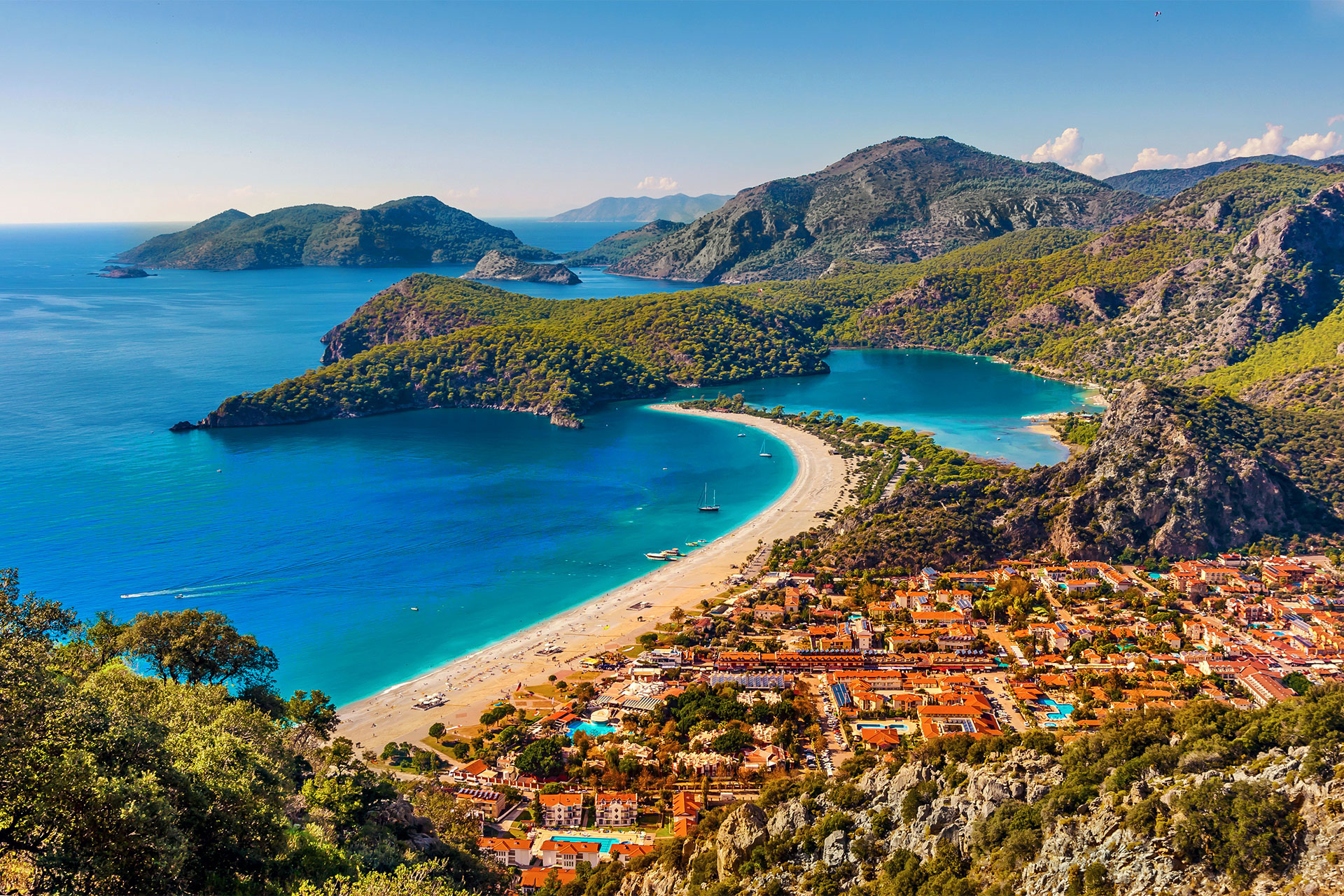From the perfect beaches and ancient ruins of its coast to the pulse of its cosmopolitan cities, Turkey is a study in contrasts. Visitors can lose themselves in the magic of a historic palace before enjoying a world class meal, or swim amidst Roman ruins before continuing their journey in the comfort of a state of the art yacht. Whatever your fancy, there are countless things to see and do in Turkey. Istanbul, the largest city in Turkey, serves as the gateway for most travelers. Istanbul is the only city in the world that sits on two continents and it offers an abundance of fascinating attractions for visitors.
Some of Istanbul’s most popular sites include the Bosphorus Strait, the Blue Mosque, Haghia Sophia, Topkapi Palace, Dolmabahce Palace, the Kariye Museum, the Underground Cistern, Galata Tower, the Tower of Leander, the Princes’ Islands and the Grand Bazaar. Bursa, the land of silk, was the first capital city of the Ottoman Empire and birthplace of modern Turkish culture. The mosques, like Yesil Cami and Ulu Cami, are some of the most important and beautiful inthe country. The country’s first ski resort was built on the mountain of Uludag, lying to the south of the city.
From Canakkale Bogazi, also known as the Dardanelles, to the fairytale Crusader castle and sunny beaches of Bodrum, the Aegean shores of Turkey are among the loveliest landscapes in Turkey. The highlights of an Aegean tour are Troy, the site of the legendary Trojan War and its wooden horse; ancient Pergamon, once a great center of culture and now one of Turkey’s finest archeological sites; Ephesus, the capital of Roman Asia Minor, dedicated to the goddess Artemis whose temple was one of the Seven Wonders of the Ancient World; Aphrodisias, the center of the greatest school of sculpture in antiquity; Pamukkale, a unique fairyland of dazzlingly white calcified castles; and Bodrum, a charming coastal town with a long, palm lined waterfront and beautiful beaches.

Antalya province on the Mediterranean coast is Turkey’s principal holiday region. It is a paradise for sunbathing, swimming and sports. Best of all, Antalya serves as a convenient hub for nearby archeological attractions. Ancient theatres can be found in a remarkable state of preservation at Aspendos and Perge and visitors can tour the sunken city of Simena in Kekova. Remains of ancient Lycian cities such as Patara, Letoon, Xanthos, Myra and Apollonia are also within easy traveling distance. These are among the most fascinating sites on the Anatolian Peninsula. Cappadocia in Central Anatolia is one of the most fantastic landscapes in the world and one of the most popular tourist destinations in Turkey. The area’s early Christian inhabitants utilized its remarkable rock formations to create more than 220 churches and numerous underground cities in which they took refuge from their persecutors. Other popular destinations include Safranbolu in the Black Sea Region, an open air museum of traditional Turkish houses; Mount Nemrut in southeastern Turkey, where enormous stone statues of deities commemorate the first century BC Commagene Kingdom. Konya in Central Anatolia was home to the great Islamic philosopher Mevlana Celaleddin Rumi who in the 13th century founded the Mevlevi Order known as the Whirling Dervishes. Each year in early December, the white robed Mevlevi commemorate the death of Mevlana with their trance like turning dance or sema an amazing sight to behold.

